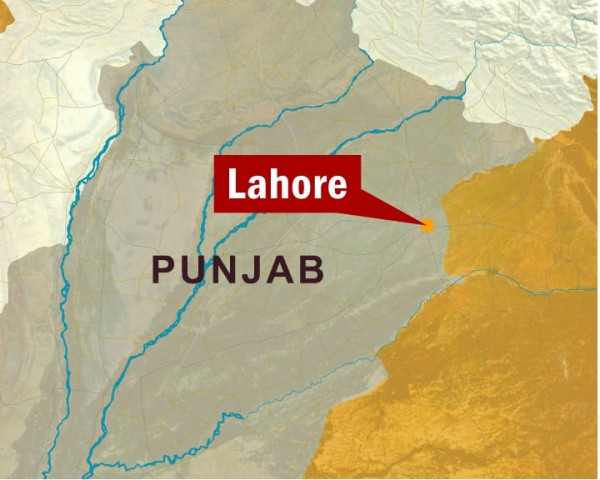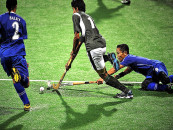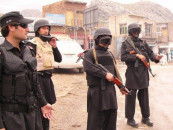The bane of reconstruction
The differences seem to be appearing within the Christian community over the use of funds released by the government.

Arthur Gill, one of the prime witnesses in the case, told The Express Tribune that while he is not satisfied with the official proceedings, he also suspects the intentions of the 13-member committee formed to pursue the case. For instance, Gill feels that the committee is hindering the construction of a house belonging to Almas Hameed, who lost seven members of his family in the riots, to get more money from the government. So far, Rs200 million have been spent on the construction of 60 houses that were torched while the committee has submitted a claim of Rs130 million more to cover other damages, such as goods that were burnt.
“Houses of all the affected Christians have been reconstructed, but members of the committee did not allow the authorities to rebuild Hameed’s house,” says Gill. “Since Hameed has left the country, the committee is handling his case. The committee is using this opportunity to receive more funds from the government.”
The 13-member committee was formed by the community to pursue the case of eight Christians who were burnt alive and demand compensation for the 60 houses that were destroyed.
Others say that the committee quoted a larger amount than required so that they would be able to get a cut from the funds, or that the memorial it has proposed should not be built. Another committee of 30 members has been formed by the community to investigate the allegations.
At the same time, the president of the committee, William Prakash, refutes the allegations, saying that some members of the community had been bribed to weaken the case by issuing such statements.
“All the 13 members had sworn on the Bible to not budge an inch from our stance till the culprits are punished. The only reason we have been asking for money is because we need to fight the case. We don’t need anything for ourselves,” he says.
Prakash adds that the committee also decided to stop working with the NGO that was initially helping to fight the case because it tried to convince Hameed to reconcile with the accused. “We then decided to pursue the case without their help.”
There are also complaints that the tearing down of houses and a church which was burnt has damaged structures adjacent to them but which do not qualify for compensation. For instance, Yousaf Masih’s house was demolished when the church next to it was being reconstructed but the authorities are refusing to rebuild it. “I have no place to live and am currently staying in the church’s compound with my young daughters,” Masih says. “The church administration had promised to build my house but they are ignoring me now.”
DCO Toba Tek Singh Amanullah Khan says that some of the demands being made are unjustified. “Some say that they are unable to run their businesses properly after the incident. We certainly cannot help such people.”
Khan also says that the reason Hameed’s house was not built was that he demanded Rs4 million versus the Rs1.4 million offered by the government.
The DCO also acknowledges that compensation money has not yet been paid to Talib Masih and Mukhtar Masih, who were accused of blasphemy, as the case is still pending. “They should come forward and face the charges. Only then will we hand them their cheque.” At the moment, both are absconding.
Published in The Express Tribune, July 6th, 2010.



















COMMENTS
Comments are moderated and generally will be posted if they are on-topic and not abusive.
For more information, please see our Comments FAQ